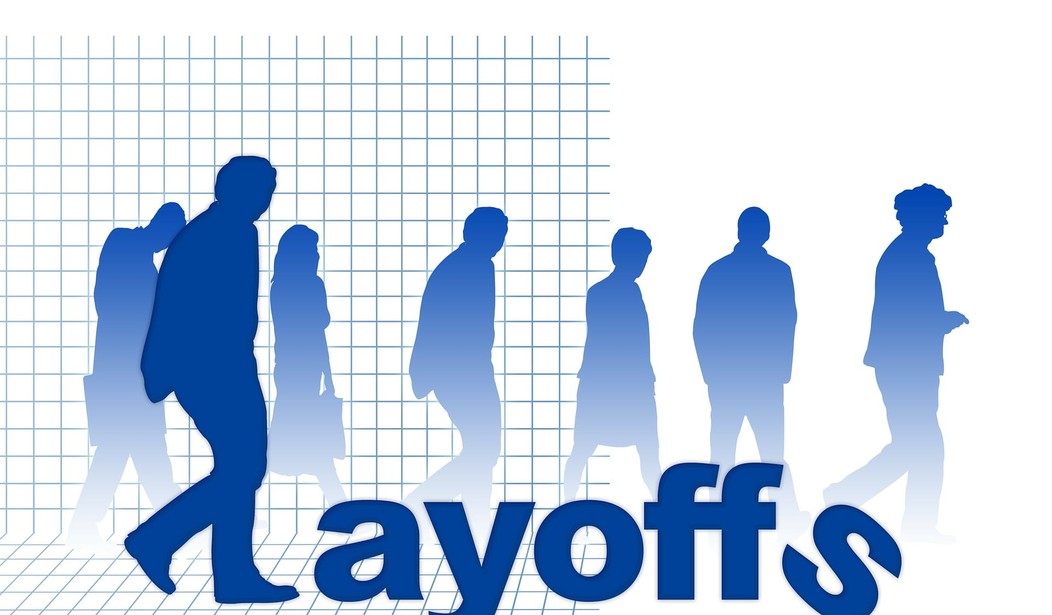More dismal news as the economic fallout from coronavirus continues. As the pandemic has ground the economy to a standstill, and seemingly no end in sight for state-by-state stay at home orders, jobless claims spiked again this week. The Department of Labor reported 5.245 million new jobless claims last week:
It took only four weeks for the U.S. economy to wipe out nearly all the job gains of the past 11 years.
The coronavirus and the forced closure of business throughout the country again fueled the number of Americans applying for state unemployment benefits, which last week totaled 5.245 million, the Labor Department reported Thursday.
Combined with the three prior jobless claims reports, the number of Americans who have filed for unemployment over the previous four weeks is 22.025 million. That number is just below the 22.442 million jobs added to nonfarm payrolls since November 2009, when the U.S. economy began to add jobs back to the economy after the Great Recession.
The United States needs to see 417,000 new jobless claims next week to surpass the grim milestone of wiping out all the employment gains in the last ten-plus years. That seems inevitable at this point.
The government stimulus hasn’t helped, either. The Paycheck Protection Program, a $349 billion loan program for small businesses, ran out of money today after only two weeks:
The U.S. Small Business Administration said Thursday morning the Paycheck Protection Program wouldn’t be accepting any more applications for the $349 billion program. It said the decision was based on the program’s level of funding.
The Paycheck Protection Program loans have an ultra-low 1% interest rate, and interest on the loans don’t have to be paid for the first six months. The program is focused on helping businesses with 500 or fewer employees.
But the biggest draw of the Paycheck Protection Program, which launched nearly two weeks ago, is that borrowers that don’t lay off workers in the next eight weeks will have their loans forgiven — principal along with interest. That’s created a crushing demand for the loans, but also confusion as more than a million businesses scrambled to get them.
Despite the demand, some economists and small businesses owners say the PPP loans are a bad fit for what they currently need amid a pandemic that has forced them to shutter their doors.
Some business owners who applied early say they are still waiting for their money. One large bank said it still has tens of thousands of applicants waiting for their loans to be approved, even as the SBA announced the program was tapped out.
The bad news just keeps coming:
The layoffs, which started in service-sector jobs that were dependent on tourism and travel, are now reaching into other sectors of the economy, according to Morgan Stanley analysts.
“Layoffs are also, now to a greater extent, affecting industries that should be relatively adaptable to work-from-home arrangements,” they wrote in a research note.
Economists are predicting that jobless numbers will continue to rise. Oxford Economics has said it expects as many as 30 million U.S. job losses stemming from the virus — that would be three times the number of jobs that disappeared after the housing crash.
This follows dire warnings from the Fed on Wednesday that the “bloodletting will continue:”:
Washington (AFP) – The devastation caused to the US economy by the coronavirus pandemic was thrown into even sharper relief Wednesday with new government data and a report from the Federal Reserve warning the bloodletting would continue.
Lockdowns necessitated by the pandemic caused economic activity to contract “sharply and abruptly,” the Fed report said, and most businesses surveyed across the country expected “conditions to worsen in the next several months.”
The warnings in the central bank’s “beige book” came after the Fed and Commerce Department earlier in the day released monthly surveys that showed contractions not seen in decades for retail sales and manufacturing, both crucial for the world’s largest economy.
About 17 million people have lost their jobs since mid-March but the Fed, which has already slashed its benchmark interest rate to zero and pumped trillions of dollars of liquidity into the financial system, said “the near-term outlook was for more job cuts in coming months.”
With more than two million cases worldwide, the spread of COVID-19 has driven the global economy into its deepest recession in a century, with the International Monetary Fund warning $9 trillion will be slashed from global GDP.
The Fed listed leisure and hospitality along with retail — except for essential services — as industries badly affected due to social distancing measures and mandated closures.
Most of the 12 Fed districts reported declines in manufacturing as well, and though food and medical products reported strong demand they faced both production delays, due to infection-prevention measures, and supply chain disruptions.
Even if federal and state governments ended stay at home orders tomorrow and told the nation to get back to work, some industries simply won’t recover. There is no switch that can be flipped to reverse this contraction. The shockwaves of this economic halt will continue to reverberate for far longer than anyone wants to imagine.
Jeff Reynolds is the author of the book, “Behind the Curtain: Inside the Network of Progressive Billionaires and Their Campaign to Undermine Democracy,” available now at www.WhoOwnsTheDems.com. Jeff hosts a podcast at anchor.fm/BehindTheCurtain. You can follow him on Twitter @ChargerJeff.
Editor’s Note: Want to support PJ Media so we can keep telling the truth about China and the virus they unleashed on the world? Join PJ Media VIP and use the promo code WUHAN to get 25% off your VIP membership.










Join the conversation as a VIP Member